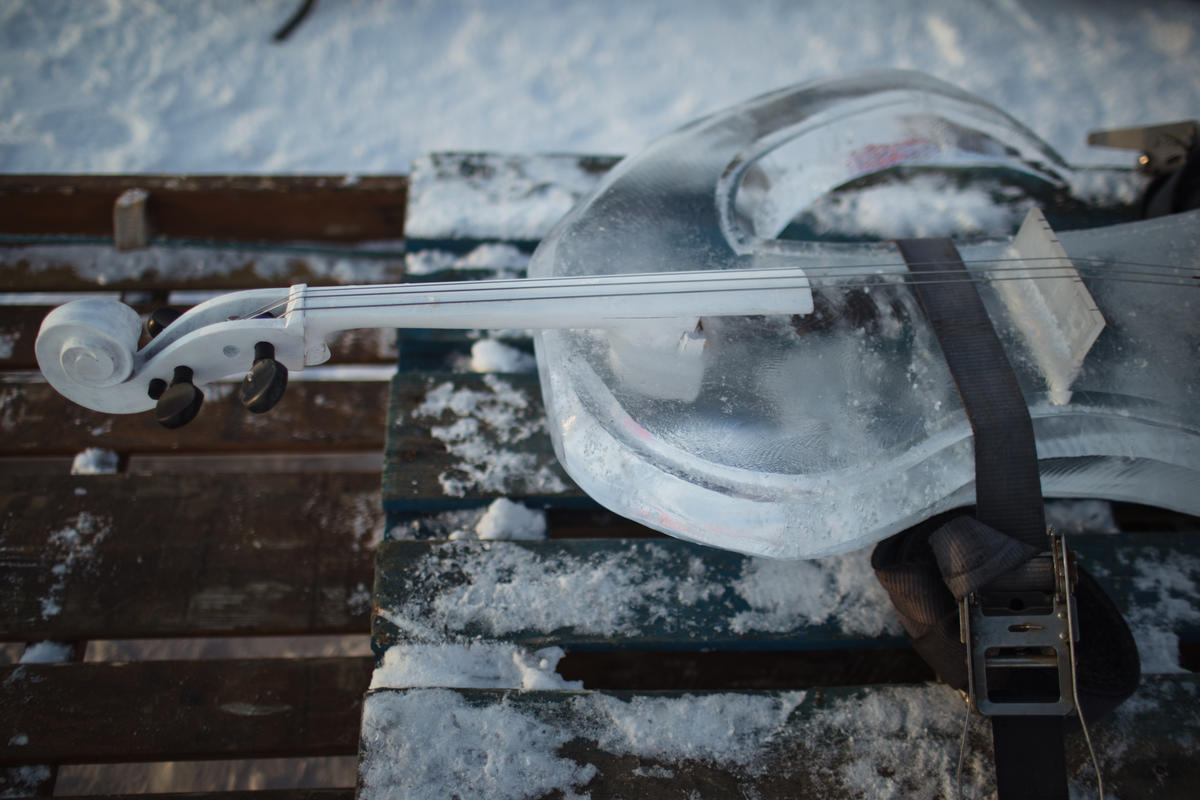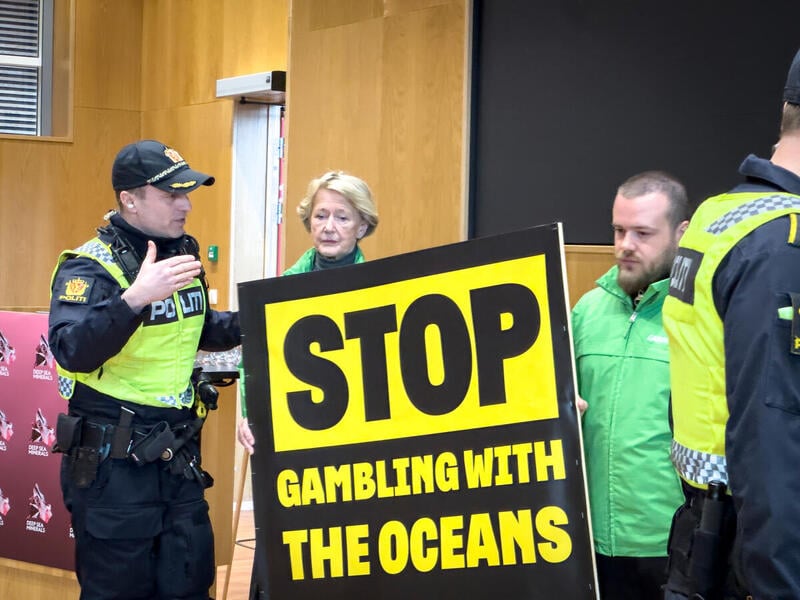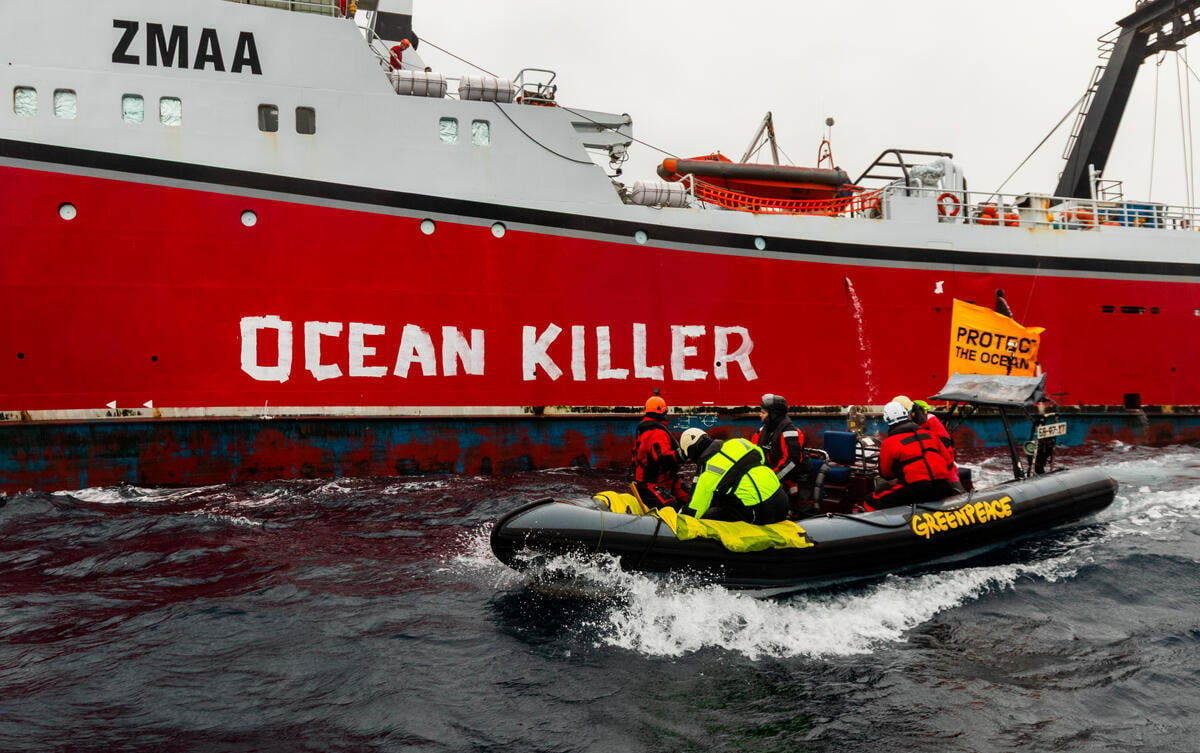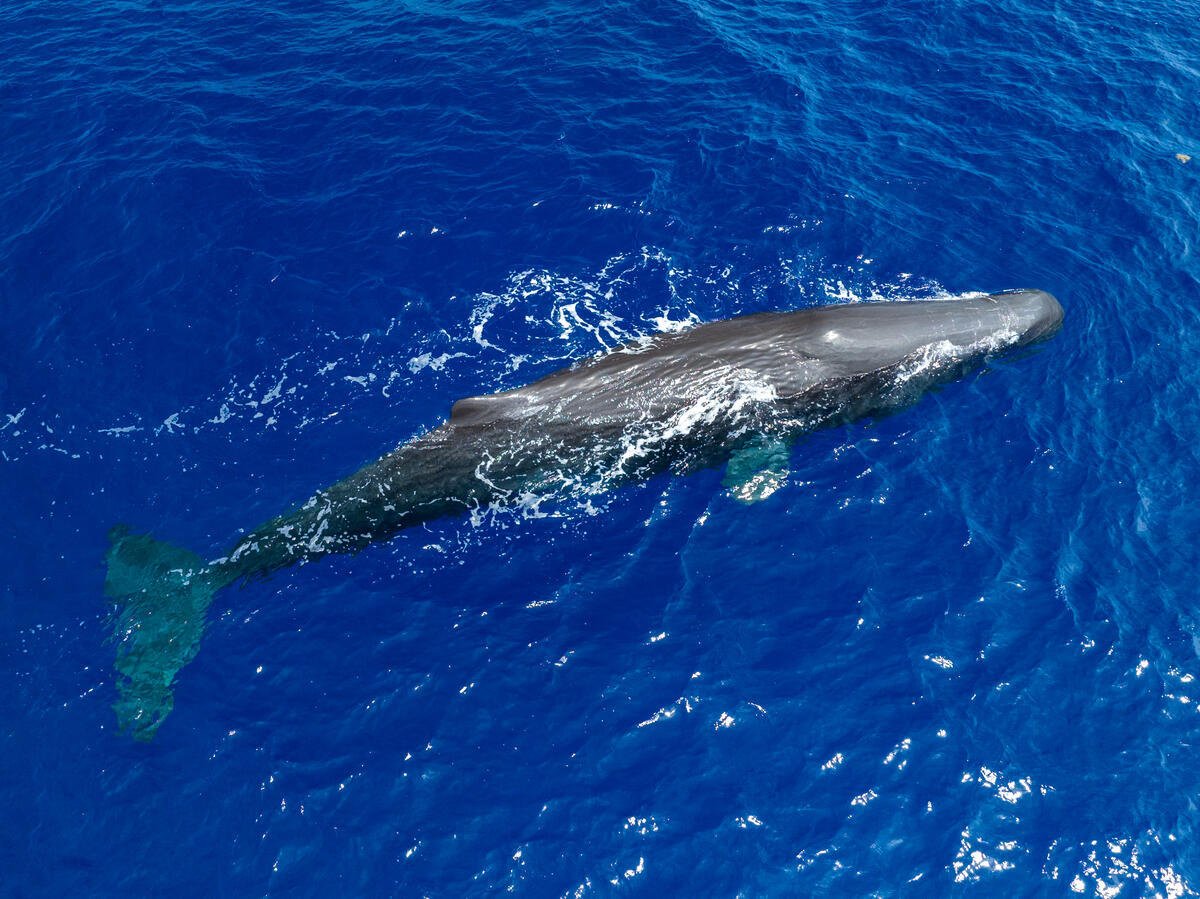I never thought you’d need a freezer in the Arctic.
But April 2019 saw average temperatures that were 8 degrees above normal. It meant that this concert, performed entirely on instruments carved from Arctic ice, nearly didn’t happen. It was almost too warm to have an ice concert in the Arctic.
We brought four musicians and an ice carving artist to the Arctic to give the ice its own voice to sing, as a representation of the fragility of the region and how close it is coming to melting away. It’s an idea that only Greenpeace could pull off.
The instruments, carved from pieces of ice that had already broken off the glacier, started melting away before they were even finished. It took over a week of searching and waiting for the right conditions before this idea could come to life.
This was a once in a lifetime experience, not just for us but also for the musicians. With temperatures below -12 degrees celsius, the rhythms of chimes, horns, ice percussion and a cello blended together to send a message to the world’s leaders: We need to protect at least 30% of our global oceans by 2030.

A thriving ocean helps protect us from climate change. Carbon is naturally absorbed by plants and animals: it’s in the bodies of living creatures like whales and fish, and can be buried on the seabed when they die. Animals feeding at the surface and pooping in the ocean depths drives what’s known as the oceans ‘carbon pump’, pulling carbon from the atmosphere and locking it away underwater. Damaged oceans would make climate change worse.
The ice covered Arctic works like an air-conditioner for the planet, but as the ice melts it’s contributing to the acceleration of the climate breakdown. What happens in this fragile corner of the world affects us all.
This is just the first stop on our voyage from the Arctic to the Antarctic, carrying out important scientific research to show world leaders the need for a strong Global Oceans Treaty.
After the ice performance was done, the lead musician, Terje Isungset, said it better than I could:
“You have to treat ice with respect, otherwise it breaks. We should do the same with nature.”
Halvard Haga Raavand is an oceans campaigner with Greenpeace Norway



